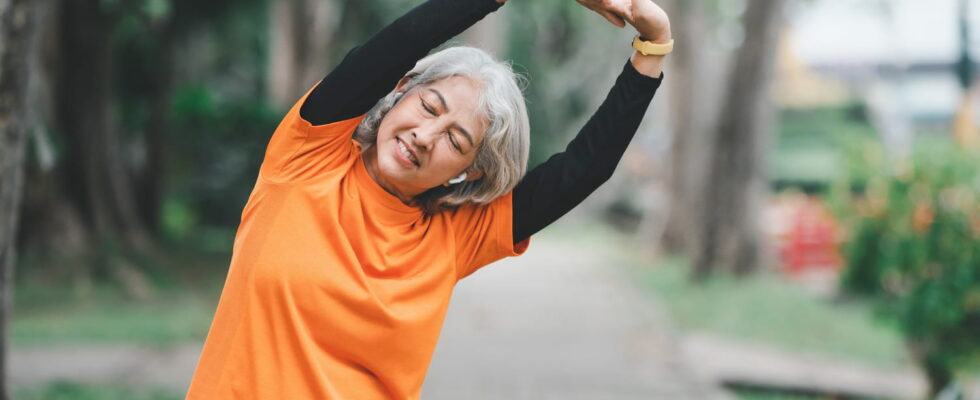A few minutes a day are enough to have the benefits.
The Japanese are known for their exceptional longevity and their impeccable lifestyle. The healthy, balanced diet, rich in plant, raw, local and seasonal products is the main pillar of their excellent “health” capital. A famous Japanese saying also says “let food be your medication”. But Japanese lifestyle is not confined to food; Meditation, spirituality, zenitude and physical activity participate fully.
To stay in shape, nearly 27 million Japanese (i.e. 1 in 5 Japanese) have at least twice a week a almost centenary specific morning ritual. It is a gym program called “Raijo Taiso” (literally means “radio gymnastics”) which has been broadcast since 1928 on the NHK national radio (Nippon Hōsō Kyōkai) since 1928) every morning at 6:30 am. The Japanese can also follow the program on television or on the Internet at different times of the day. Originally, this radio program was designed to improve the general health of Japanese soldiers. Today, it is intended for the general public and can be achieved by everyone, regardless of their age or physical condition.
Concretely, it is a series of 13 very simple exercises of sweet gym (see the photo below) which awaken the body, soften the joints and tone the muscles gently. All to make on a background of classical music – generally piano – known to improve mental health, stimulate creativity, concentration and strengthen physical well -being. Lasting a total of only 3 minutes, these small exercises to do are practiced without equipment, anywhere (at home, in a park …), alone or in a group.
Despite its short duration and its sweetness of achievement, this program is associated with immediate positive effects that intensify with regular practice. It would help to age in shape, to avoid metabolic problems, to prevent cardiovascular risks and to limit sleep disorders that considerably influence the quality of life. A study Led by the Tokyo Metropolitan Institute of GERontology and published in the BMJ OPEN in 2022 confirmed the benefits of this practice on the level of energy, posture, physical condition, sleep and cognition of people of more than 75 years old.
Some Japanese companies even reserve slots to allow their employees to practice Raijo Taiso and thus be more energetic and more productive. It is also used in some schools to warm up before physical education and sports lessons.
